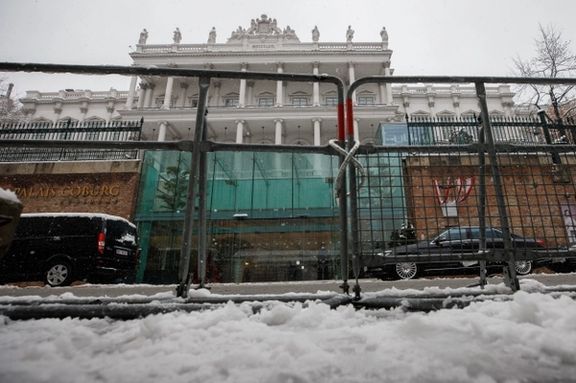Iranian Pundits Guarded About A Quick Success In Nuclear Talks

Iranian media and commentators continue to assess the Vienna nuclear negotiations, as the country’s dire economic situation breeds a sense of urgency.

Iranian media and commentators continue to assess the Vienna nuclear negotiations, as the country’s dire economic situation breeds a sense of urgency.
Ebrahim Mottaqi, an academic and political commentator in Tehran, has said that another round of talks in the last week of December is unlikely to be a turning point in Iran's nuclear negotiations with world powers.
Motaqqi said diplomacy is less likely to bear fruit during the final days of the year although it appears that Iranian, European, Russian, Chinese and American delegates have enough motivation to continue their efforts.
Meanwhile, according to Mottaqi in an interview with Fararu news website, the President Ebrahim Raisi Administration is adamant to further the talks in a way that would have a positive impact on Iran’s economy. However, he says, although Iran seems to have the necessary willpower to pursue the talks, it is unlikely that the negotiations could lead to tangible results in the short run.
According to Mottaqi, what Iran wants in the negotiations is to have the US sanctions lifted, and to make sure that the danger of another US pull-out from the nuclear deal is minimized.
Meanwhile, US-based former Iranian diplomat Hossein Mousavian has saidin an article that "Iran's strategic patience has come to an end and the United States can no longer play with time to get non-nuclear concessions from Iran."
Iranian official news agency IRNA quoted Mousavian's article in the Journal of the Russian Academy of Science as saying that although everyone expected President Joe Biden to break the deadlock in relations between Iran and America by returning to the 2015 nuclear deal, it turned out that his plan was to continue President Donald Trump's ‘maximum pressure’ policy.
This is similar to what Tehran has been demanding all along, that Washington should first lift its sanctions and then negotiate – albeit without leverage.
Iran's former ambassador to Germany, Ali Majedi, on the other hand, believes that the new round of talks in Vienna is going to have a determining impact on the fate of the negotiations. However, Majedi stressed that the talks have a better chance to succeed if instead of the 4+1 Iran agrees to hold the meetings with the P5+1, that is the three European states, Russia, China, plus the United States, which is currently indirectly involved in the talks through European mediators.
State-controlled media in recent days have been launching scathing attacks on the three European parties to the 2015 nuclear deal (JCPOA) accusing them of “sabotaging the negotiations. Clearly Tehran is unhappy that Europeans have been demanding Iran show more willingness to compromise. Majedi in his interview with Khabar Online website in Tehran followed the same argument but said that Europe can still play a positive part in the talks. However, he agreed with other commentators that even Germany has not been playing “a positive part” in the latest round of talks.
Majedi stressed that at the time being, it is not clear whether the Western sides wish to return to the 2015 agreement, or they want to add some new items to the JCPOA.
Asked about the divide between Europe and the United States under President Trump, Majedi pointed out that Democratic administrations in the United States usually maintain better ties with Europe and this will also affect the fate of the Vienna negotiations.